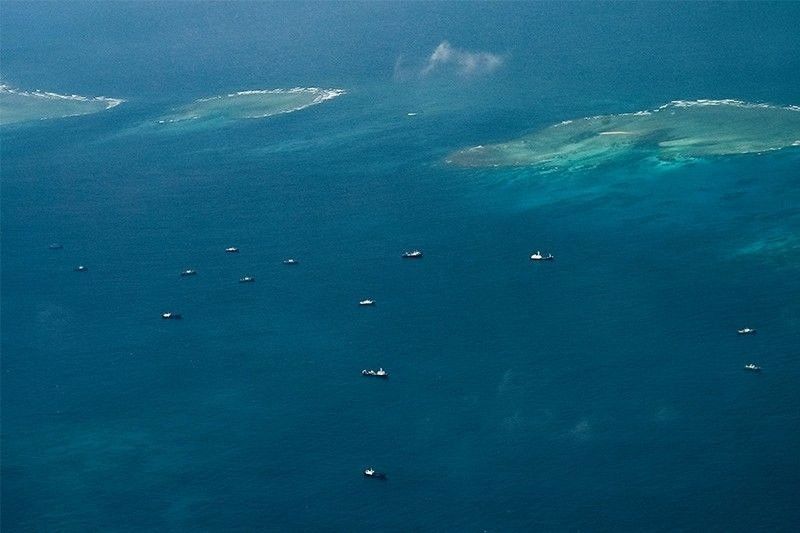China admits dredging activities

MANILA, Philippines — China has admitted carrying out reclamation and dredging activities in the South China Sea – but only on its “own” territory, Beijing’s foreign ministry said yesterday.
Ministry spokesperson Mao Ning issued the statement to deny President Marcos’ pronouncements at a forum last Monday in Hawaii that China’s military facilities on reclaimed features have come dangerously near the Philippine coastlines.
“China carrying out construction activities on its own territory is a matter purely within the scope of China’s sovereignty and other countries have no right to point fingers at it,” Mao said at a press conference in Beijing.
She said China’s position and claims concerning the South China Sea issue are “solidly grounded in history and the law.”
At the Asia-Pacific Center for Security Studies forum, Marcos also said the Philippines is negotiating a separate code of conduct in the South China Sea with Vietnam and Malaysia, citing the “slow progress” in the forging of a COC between ASEAN and China.
“We are now in the midst of negotiating our own code of conduct, for example, with Vietnam because we are still waiting for the code of conduct between China and ASEAN and the progress has been rather slow unfortunately,” Marcos said during the question and answer session.
“And so we’ve taken the initiative to approach those other countries around ASEAN with whom we have existing territorial conflicts,” he said.
China, however, pushed back against the idea of a separate COC among claimant states, warning that “any departure from the DOC framework and its spirit will be null and void.”
Mao was referring to the 2002 Declaration on the Conduct of Parties in the South China Sea or DOC, which does not provide sanctions and has failed to stop Chinese aggression in the West Philippine Sea.
Like the Philippines, Vietnam and Malaysia also claim part or parts of the South China Sea, believed to have large reserves of oil and gas.
“And to make our own code of conduct and hopefully this will grow further in the extent – into the other ASEAN countries and at the very least we have that basis between – not only in the multilateral sphere as in ASEAN or APEC, all of these other organizations but also bilaterally with the different countries around ASEAN whom we have conflicts with, but with whom, I think, we can find a way to maintain the status quo,” Marcos stated.
Marcos said the COC’s primary purpose is to maintain peace in the region. Since 2002, ASEAN has sought to obtain China’s consent to a binding COC in the South China Sea.
ASEAN is composed of the Philippines, Brunei, Cambodia, Indonesia, Laos, Malaysia, Myanmar, Singapore, Thailand and Vietnam.
The Philippines has been demanding that China adhere to international laws, including the 1982 United Nations Convention on the Law of the Sea or UNCLOS. It has also been pushing for Beijing’s compliance with the 2016 ruling of an arbitral court based in The Hague, which invalidated Beijing’s sweeping claims in the South China Sea and reaffirmed the Philippines’ maritime entitlements.
Meanwhile, the Philippine Air Force is exploring opportunities to further strengthen relations and engagements with the Vietnamese Air Force. – Helen Flores, Michael Punongbayan
- Latest
- Trending






























